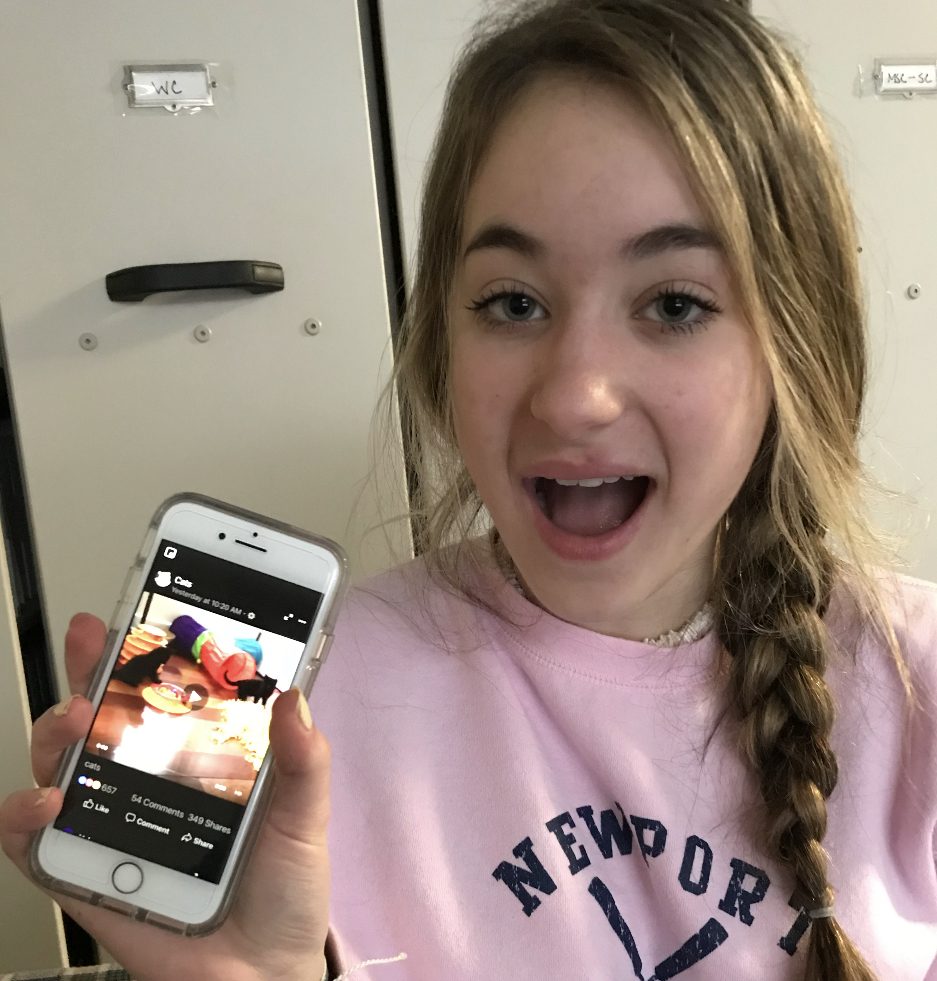Is Your Phone Listening?
An investigation into phone conspiracy theories
February 27, 2019
What would you do if you found out that your phone was listening to or watching everything you do?
“It really makes me wonder what Apple is really doing with their phones,” said junior Emily Howe.
For several years, there have been conspiracy theories being thrown around that your phone is listening and watching you all the time. Companies such as Apple, have run into problems with people claiming that their phones were listening to what they were saying. The Triton Voice interviews students and people in the tech world on their opinions of these conspiracies.
There are several students in Triton who are familiar with the Youtuber, Shane Dawson, who is infamous for debunking and coming up with conspiracy theories.
One of the theories that stood out to Emily Howe was when Dawson showed how before you pick up the phone, that if you speak before answering, the person on the other end can hear what you had said a couple seconds before.
“I believe his conspiracies about the phone are true,” said Howe. “Because Shane had his friend Garret Watts test his conspiracies with the iPhone, and his other conspiracies he has real life evidence and events that support his claims.”
According to Howe, after seeing and hearing about these conspiracies with the phone, it made her question where she takes her phone.
“When I take out my camera, is the live video still recording after I am finished with it?” asked Howe.
There are phones that can be triggered to open or wake-up with a certain sentence. To trigger the phone to wake-up, the phone is always listening and recording for that sentence. Apple products allow users to say, “Hey Siri” to activate Siri when doing research or if you need to look up something on the spot. With the microphone always on, some apps, like Facebook, are claimed to be listening as well. A journalist for Vice.com did an experiment with Facebook.
For five days, twice a day, the journalist, Sam Nichols, tried saying a bunch of phrases that could be used as triggers to the phone and the app. He carefully monitored the sponsored posts on Facebook for any changes.
The changes came overnight. Suddenly, Nichols was getting ads about clothing brands and something that popped up about a private conversation him and a friend were having. To Nichols, it was eye-opening and utterly terrifying.
The Triton Voice tried out the same experiment to see if the outcome would have similar results.
Junior Kaylyn Pesaturo started talking into her phone about cats to see if Facebook would pick up on what she was saying. The phrases she used varied from, cat food, kittens, cat toys meow, and even “the opposite of bark”.
She then opened up Facebook and the results were scary. The first thing that popped up on her feed, was a meme with a cat on it.
The same test was produced, but later on in the evening. About an hour after the same phrases were said, there were yet again, more posts that involved cats.
Lisa Lovely is an IT examiner for the FDIC and her job is to look at the technology deployed in banks and the security they have implemented around that technology.
She explained that devices like Echo and Apple use a “wake word” to await instructions.
“The Amazon Echo is always listening-but it’s not, it is recording everything,” said Lovely. “Alexa will record some of the talk after the wake word.”
She said that voice recognition is not perfect and sometimes wakes when there is background noise.
“Facebook is very invested in making sure the content are of interest to you,” she said. “So when you’re on the internet or using various apps, there are little remnants of where you were, what you were doing-cookies, history, etc.”
“That stuff gets shared and everything is basically interconnected,” said Lovely.
Lovely said that these big corporations, like Facebook, are not specifically spying on you and they really don’t care about who you are or what you do, they care about the “collective you”.
“They want content to be relevant so that we all will continue using their technology and buying stuff from ads we click on.”
Lovely is personally not worried about the conspiracy theories revolving around technology listening to what you say, but she says that, “we should always keep security in mind. It is true the saying, ‘nothing on the internet is private.’”

